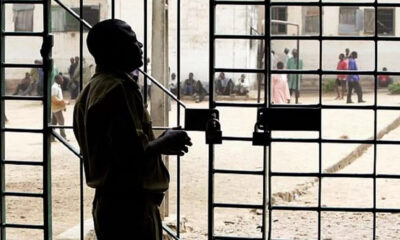The Federal Government on Tuesday, disclosed that Nigeria is currently off-track concerning progress on achieving the global Sustainable Development Goal sanitation target and is regrettably among those behind.
It also stated that the country loses about $3 billion annually due to poor sanitation arising from the use of unsanitary or shared toilets and open defecation.
The Minister of Water Resources and Sanitation, Prof. Joseph Utsev, who disclosed this in Abuja at the National Workshop on Safely Managed Sanitation, however, stated that the government was working hard to tackle the identified concerns.
He said, “The Sustainable Development Goal target 6.2 for sanitation seeks to ‘achieve by 2030, access to adequate and equitable sanitation and hygiene for all and end open defecation, paying special attention to the needs of women and girls and those in vulnerable situations.’
“We acknowledge that access to safely managed sanitation is not just a basic human right, but an essential foundation for social and economic development.
“With only six years to the SDG target date of 2030, progress on achieving the global SDG sanitation target of safely managed services is off-track and regrettably among those furthest behind.”
This, according to Utsev, came with high disparities in access across wealth quintiles and locations.
“The Federal Government is committed to the actualisation of the SDG 6 target for Sanitation and our commitment is motivated by the realisation that it would contribute significantly to the achievement of our national developmental goals and the key priority areas of this government,” he stated.
He outlined some of the priority areas to include food security, ending poverty, economic growth and job creation, as well as inclusivity.
Utsev noted that the opportunities across the sanitation value chain could contribute to a reduction in healthcare costs, improved productivity, job creation and economic growth.
On the cost implication of poor sanitation, the minister said, “The World Bank report in 2012 on the economic impact of poor sanitation due to the use of unsanitary or shared toilets and open defecation cost Nigeria an estimated N455bn, equivalent to $3bn in losses annually, with open defecation accounting for a third of this amount.
“These costs include health care, loss of productivity, premature deaths and poor educational outcomes. Social costs of open defecation which cannot be quantified in monetary terms include loss of dignity, lack of privacy and increased vulnerability to physical attacks and violence especially for women and girls.”
The United Nations Children’s Fund announced that 48 million Nigerians, representing 23 per cent of the country’s population, still defecate in open space.
Out of this number, the North-West geopolitical zone has 11 per cent; North-East, 17 per cent; North-Central, 47 per cent; South-West, 24 per cent; South-South, 23 per cent; and South-East, 23 per cent.
The global agency’s North-East Water, Sanitation, and Hygiene Manager, Mamita Bora Thakkar, in Maiduguri, Borno State capital, at a news briefing preparatory to the 2023 World Toilet Day celebration which is annually marked on November 19.























